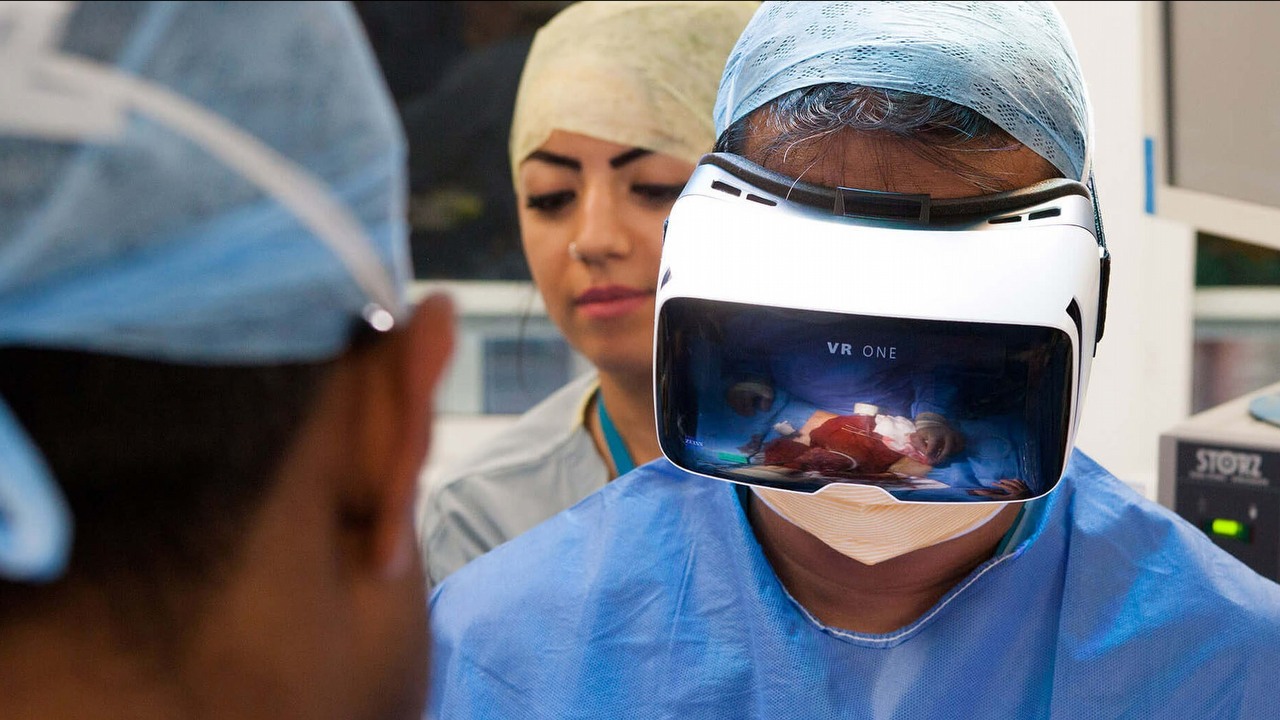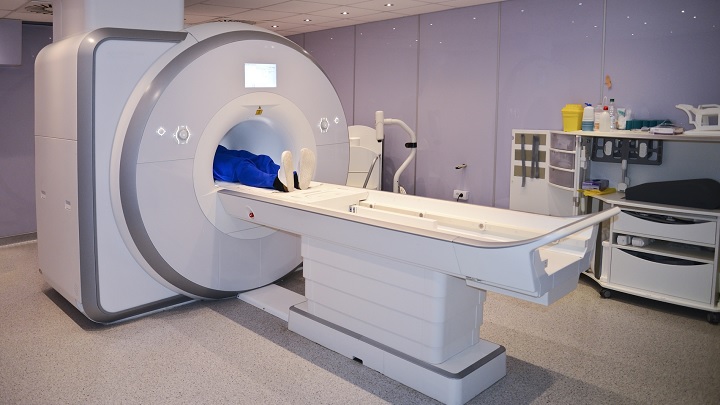British Scientists Propose VR Instead of Anesthesia
Virtual reality stirs the imagination not only of gamers. Also doctors see the potential of VR, for example as... an alternative to anesthesia during unpleasant examinations or treatments.
1

For many gamers, virtual reality remains a mere curiosity, often known only from second or even third-hand accounts. However, Dr Kun Qian and other researchers at London's King's College have found a practical application for the technology: calming patients during magnetic resonance imaging (MRI) scans. The journal Scientific Reports presented their VR set (via EurekAlert!).
MRI imaging takes place inside a machine that the patient enters in a supine position. The small space and the sounds made by the scanner can cause problems for some people, such as children under the age of 5 and people who suffer from claustrophobia (in the former, MRI scans fail in up to half the cases). This necessitates the use of sedation, or even general anaesthesia, which is costly and time-consuming, and always associated with risk. In addition, scientists receive potentially skewed data on brain function in these individuals, who are de facto put into a state of artificial sleep.

So the researchers looked for another way to calm the patients. This took the form of a special VR headset that displays visual content to absorb the subject's attention. The issue of auditory stimuli was solved in such a way that the virtual world is located on... a construction site, from which mechanical sounds (in fact, produced by the scanner) come.
The patient's immobility, on the other hand, is ensured by the fact that the device allows for interaction with the world only through the eyes, i.e. focusing the eyes on the selected object. The question of content is still open, but movies and games have been mentioned. Ba, there is even mention of the option to talk to a caregiver or companion through a webcam.
Kun Qi and his team are by no means the first researchers to recognize the potential of virtual reality immersion in medicine. The technology has aroused the interest of researchers for a long time, for example - as demonstrated by Epic Games - in the training of doctors.
The result: those allowed to use the VR kit (showing the Skogafoss waterfall in Iceland) coped with the procedure noticeably better and more painlessly, despite side effects in the form of more frequent nausea and dizziness (via EurekaAlert!). This confirms what doctors have been discussing for a long time (vide The Medical Futurist).
- Can you live a normal life in Cyberpunk 2077? YouTuber takes on a 15-hour experiment, goes through a lot of frustration, but is eventually satisfied
- 236 hours, 55 minutes and 45 seconds. Baldur's Gate 3's dubbing scale exceeded even Larian's expectations
- Rockstar went too far with the realism in the open world? An experiment in Red Dead Redemption 2 revealed a shocking level of detail
1

Author: Jacob Blazewicz
Graduated with a master's degree in Polish Studies from the University of Warsaw with a thesis dedicated to this very subject. Started his adventure with gamepressure.com in 2015, writing in the Newsroom and later also in the film and technology sections (also contributed to the Encyclopedia). Interested in video games (and not only video games) for years. He began with platform games and, to this day, remains a big fan of them (including Metroidvania). Also shows interest in card games (including paper), fighting games, soulslikes, and basically everything about games as such. Marvels at pixelated characters from games dating back to the time of the Game Boy (if not older).
Latest News
- Butcher's Summit, an impressive free diselpunk FPS, has been released
- Free FPS on Half Life engine gets big update
- On February 3, gaming history could change forever. Red Dead Redemption 2 one step away from a major achievement
- This is not the RPG you expected. Crimson Desert abandons the key elements of the genre, going for original solutions
- Nintendo may unexpectedly beat Sony. State of Play is not to be the only game show awaiting players in February

